Wichtige Dokumente
483095
PEDOT:PSS
conductive grade, 1.3 wt. % aqueous dispersion
Synonym(e):
PEDOT:PSS, Poly-(2,3-dihydrothieno-1,4-dioxin)-poly-(styrolsulfonat)
About This Item
Empfohlene Produkte
Produktbezeichnung
Poly(3,4-ethylendioxythiophen)-poly(styrolsulfonat), 1.3 wt % dispersion in H2O, conductive grade
Qualität
conductive grade
Zusammensetzung
PEDOT content, 0.5 wt. %
PSS content, 0.8 wt. %
Grünere Alternativprodukt-Eigenschaften
Design for Energy Efficiency
Learn more about the Principles of Green Chemistry.
sustainability
Greener Alternative Product
Konzentration
1.3 wt % dispersion in H2O
Bandabstand
1.6 eV
Leitfähigkeit
1 S/cm
Grünere Alternativprodukt-Kategorie
Lagertemp.
2-8°C
Suchen Sie nach ähnlichen Produkten? Aufrufen Leitfaden zum Produktvergleich
Allgemeine Beschreibung
Anwendung
Leistungsmerkmale und Vorteile
Verpackung
Signalwort
Danger
H-Sätze
Gefahreneinstufungen
Eye Dam. 1 - Skin Corr. 1
WGK
WGK 2
Persönliche Schutzausrüstung
Faceshields, Gloves, Goggles, type ABEK (EN14387) respirator filter
Hier finden Sie alle aktuellen Versionen:
Besitzen Sie dieses Produkt bereits?
In der Dokumentenbibliothek finden Sie die Dokumentation zu den Produkten, die Sie kürzlich erworben haben.
Kunden haben sich ebenfalls angesehen
Artikel
Tutorial Lithography Nanopatterning at Sigma-Aldrich. Lithography, based on traditional ink-printing techniques, is a process for patterning various layers, such as conductors, semiconductors, or dielectrics, on a surface.
In the emerging field of organic printable electronics, such as OLEDs and organic photovoltaics (OPVs), there is a significant need for improved organic conducting and semiconducting materials. This paper reports our recent progress in two fields: 1) the development of solvent-based dispersions of the intrinsically conducting polymer (ICP) poly(3,4- ethylenedioxythiophene) (PEDOT) and 2) the synthesis of new electron-deficient (n-type) semiconducting polymers.
Find advantages of inorganic interface layer inks for organic electronic & other applications.
Conducting polymers such as polyaniline, polythiophene and polyfluorenes are now much in the spotlight for their applications in organic electronics and optoelectronics.
Unser Team von Wissenschaftlern verfügt über Erfahrung in allen Forschungsbereichen einschließlich Life Science, Materialwissenschaften, chemischer Synthese, Chromatographie, Analytik und vielen mehr..
Setzen Sie sich mit dem technischen Dienst in Verbindung.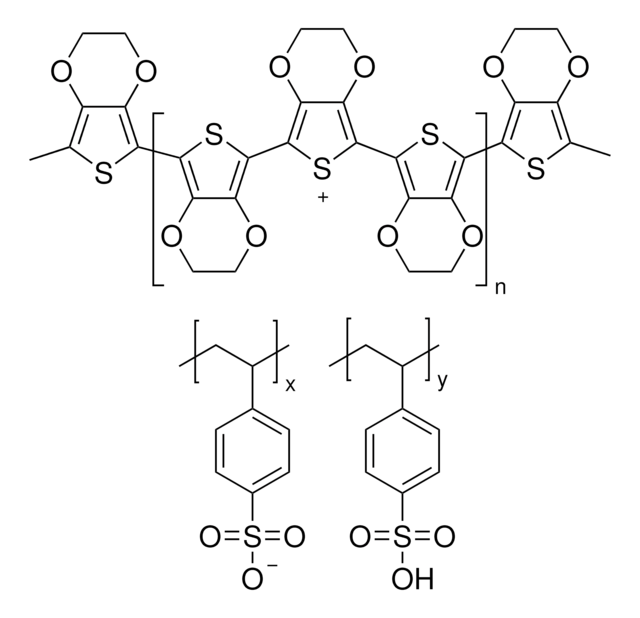
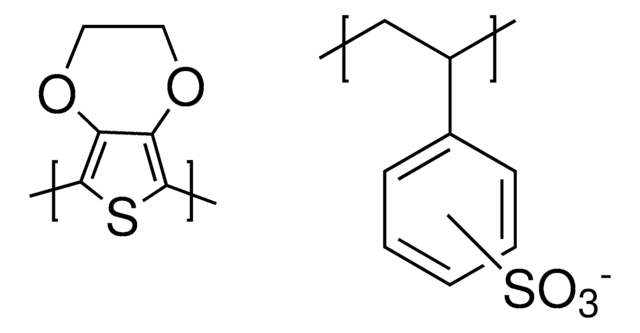
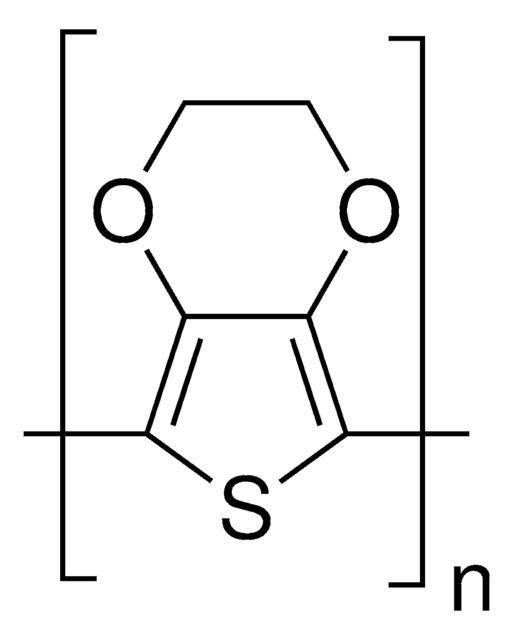
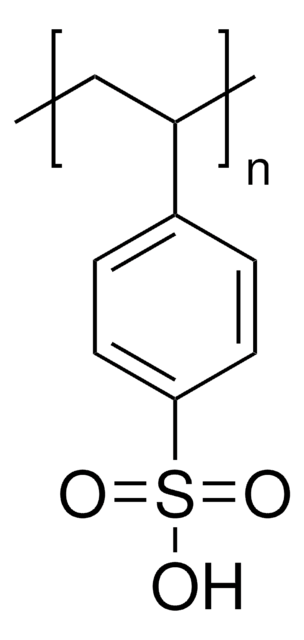
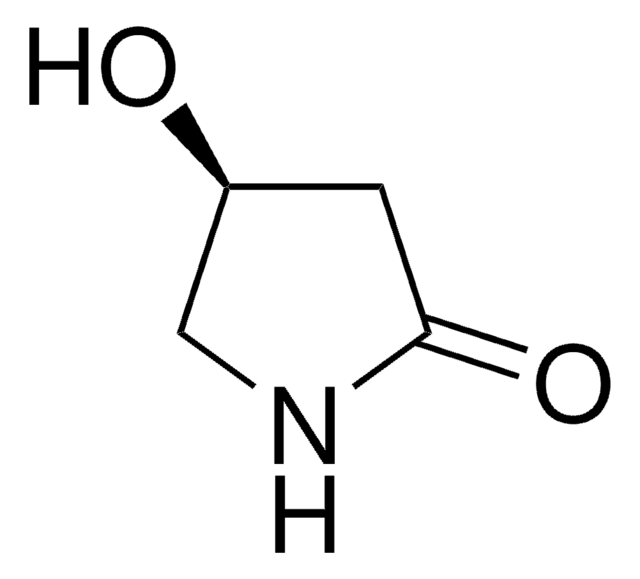

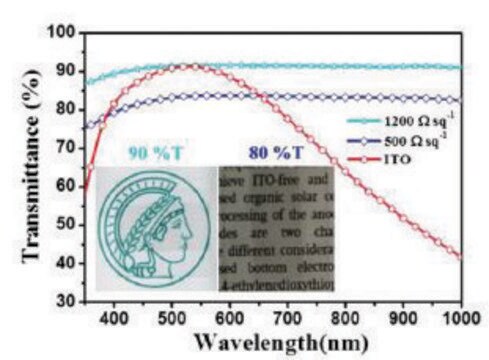
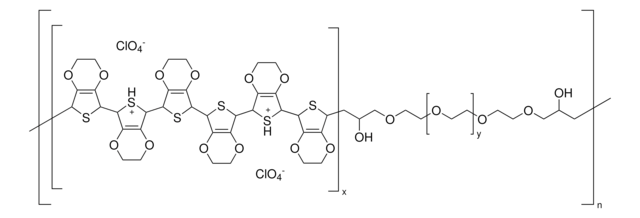
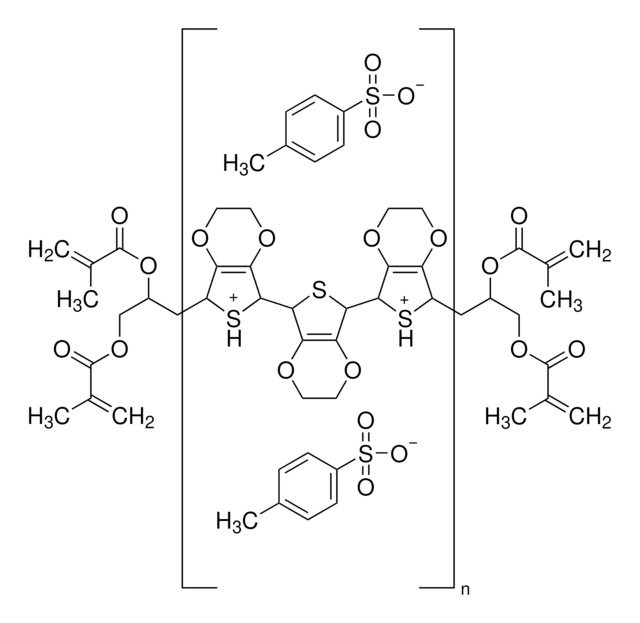
![2,3-Dihydrothieno[3,4-b]-1,4-dioxin 97%](/deepweb/assets/sigmaaldrich/product/structures/268/912/cdf638a8-0f41-4525-838f-0b60770b1999/640/cdf638a8-0f41-4525-838f-0b60770b1999.png)
